When you think of environmental toxins, images of industrial factories emitting plumes of grey smoke may spring to mind. Unfortunately, this is just one of the many environmental toxins that you can be exposed to. There are multiple different environmental toxins, and not only do they affect the environment, but they can also affect your health. This article will take a closer look at what environmental toxins are and what we can do to limit exposure and safely detox.
These toxins are manmade or are produced as a result of human actions. Some of the most common environmental toxins are:
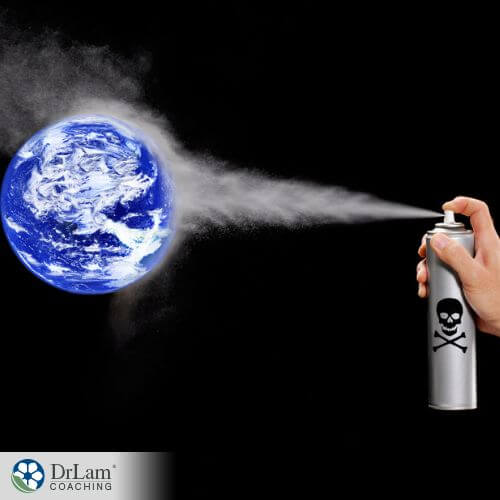
These toxins not only affect the environment but they can have harmful effects on your body. The main categories of environmental toxins are:
These disrupters include natural as well as manmade substances. Your endocrine system is a complex system that consists of glands that release hormones. These hormones are messengers and send important signals to your body. When this system is not functioning optimally it can have negative consequences on your health and result in necessary processes not being carried out.
This can affect your reproductive, neurological, and immune systems. Research suggests that these endocrine disruptors can also affect a fetus's development and an infant's development after birth (Unuvar T, Buyukgebiz A).
Let's take a closer look at some of the most common endocrine disruptors.
This endocrine disruptor is a common industrial chemical used in producing plastics and resins. Some common examples of items that contain BPA are:
This chemical can leach out of the material during washing and heating processes and can contaminate the water and food that is in these containers. A low dose of BPA in the body can cause a host of symptoms such as obesity, infertility, early onset of puberty, prostate and breast cancer as well as a change in behavior. Due to these effects, multiple countries ban the use of BPA in baby bottles.
Luckily, this chemical can leave the body quickly. One study found that when exposure to BPA was followed by a diet with foods and drinks that were not canned or packaged, the levels of BPA were reduced by 66% after three days (Rudel, et al).
There are multiple ways to reduce BPA in your lifestyle. Such as:
These substances are used to repel, control, or kill animals or plants that are declared pests. This includes pesticides to protect crops of food and pesticides to protect humans from pests such as mosquitoes.
As pesticides are commonly used on food crops, many individuals are exposed to low levels of pesticides throughout their lives. The health effects of this are unclear. However, individuals who apply pesticides to crops have an increased risk of developing diabetes.
Studies also suggest that farmers who are exposed to pesticides regularly can experience symptoms such as headaches, dizziness, and hand tremors. There is also an increased risk of developing Parkinson's disease with regular exposure.
To reduce exposure to pesticides you can:
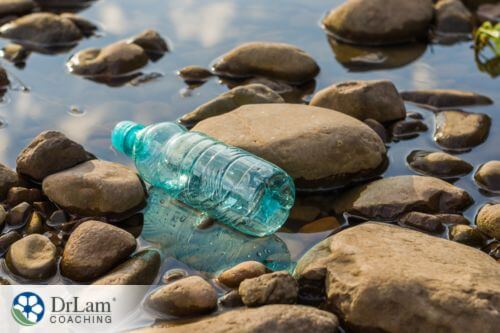 These are a common group of chemicals that soften plastics. They are commonly found in bottles and cosmetic products such as makeup, lotions, and shampoo. Research has found that prenatal exposure to phthalates can impact genital development and result in disruptive behavior later in life. Like with BPA, these chemicals can quickly exit the body (Swan, et al).
These are a common group of chemicals that soften plastics. They are commonly found in bottles and cosmetic products such as makeup, lotions, and shampoo. Research has found that prenatal exposure to phthalates can impact genital development and result in disruptive behavior later in life. Like with BPA, these chemicals can quickly exit the body (Swan, et al).
To reduce phthalates you can:
These substances can increase your risk of developing cancer after prolonged or excessive exposure. Cancers that are caused by chemicals can take years to develop.
This is a clear and odorless gas and is produced from the natural decay of radioactive elements that are found in most soils. It then moves up from the soil into homes through any cracks in the foundations, floors, and walls, where it can become trapped in basements and enclosed spaces. It is also found in some building materials and water found in wells. Radon can cause lung cancer and is the second leading cause of lung cancer after smoking.
To reduce exposure to radon:
This chemical is a colorless liquid that evaporates into the air and is in tobacco smoke, gasoline, plastics, inks, and detergents. The most common cause of benzene exposure in the US is through tobacco smoking and second-hand smoking. This chemical can increase the risk of leukemia.
To reduce exposure to benzene:
This chemical is colorless and has a strong smell. The most common use of formaldehyde is in medical labs and in mortuaries. However, other uses include industrial disinfectants, glues, cigarette smoke, and fuel-burning appliances.
Research suggests that this chemical can increase the risk of leukemia as well as cancers of the upper respiratory system (National Cancer Institute).
To reduce exposure to formaldehyde:
Gerontogens are toxins that can accelerate the aging of your cells, resulting in a reduction in longevity. The most common gerontogens are UV light and cigarette smoke. Gerontogens can affect the aging process through oxidative stress and by damaging your cells.
When toxins enter the body, they can produce free radicals in the body. Free radicals are unstable molecules that damage your cells. This damage can cause the cells to die, and if this continues, it can lead to premature aging.
Antioxidants are molecules that have the ability to neutralize free radicals. An increase in free radicals in the body will cause the antioxidants in your body to become depleted as they neutralize the free radicals. This, then, causes low levels of antioxidants in your body and can increase the risk of free radicals causing further damage in your cells, increasing cell death and aging.
To reduce the risk of cell damage, it's important to ensure that your body has sufficient antioxidant levels.
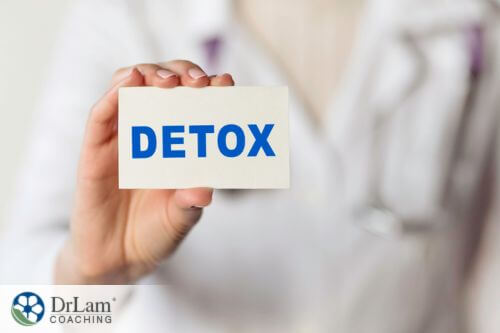 Detoxing is a process that removes toxic substances from the body. Your body naturally detoxifies through your lungs, liver, kidneys, skin, and gut. Whilst your body naturally detoxes, there are some steps you can take to support your body's detoxing process in a safe way. These steps include:
Detoxing is a process that removes toxic substances from the body. Your body naturally detoxifies through your lungs, liver, kidneys, skin, and gut. Whilst your body naturally detoxes, there are some steps you can take to support your body's detoxing process in a safe way. These steps include:
Your body has the ability to flush out toxins through water in the form of sweat, breath, and urine. Adequate hydration will help to ensure sufficient detoxification. Aim for eight glasses of water per day.
When you sleep, your body is able to remove toxins from the day. Without adequate sleep, your body is unable to do this. It also helps to rest and rejuvenate your body. The recommendation for adequate sleep is seven to nine hours for adults.
Exercising can help to reduce inflammation in your body and support the health of the organs responsible for detoxification. The recommendations for exercise are 150-300 minutes of moderate-intensity exercise per week or 75-150 minutes of high-intense exercise per week.
An excess of salt in the diet can cause fluid retention. This can cause your body to hold onto toxins and prevent it from excreting them in the urine. Keeping your salt intake to the recommended level (around 1500 to 2000 mg per day) can help to prevent this from occurring.
This can be done by reducing the amount of salt you cook with and reducing your consumption of processed food. However, do note that with certain conditions like adrenal fatigue, lowering salt intake could worsen fluid imbalance problems.
Your liver is responsible for metabolizing alcohol and is one of the body's main detoxifying organs. An excess of alcohol consumption can damage your liver. This damage can then reduce your liver's ability to remove toxic substances. If you do drink alcohol, stick to the recommendations of 2 drinks per day for men and 1 drink per day for women, or if you would like to detox your body, abstain from drinking alcohol.
A diet rich in these foods can cause weight gain and chronic illnesses such as diabetes. These conditions can reduce your body's ability to detox. These foods are also low in antioxidants. Replacing these foods with unrefined foods can help to reduce your risk of chronic illnesses, prevent damage to your detoxification organs, and replenish your body with antioxidants.
Supplements are another strategy you can use to help detox your body. However, there are many different supplements, and choosing the right one for you can be overwhelming. With this challenge in mind, the team at Dr. Lam has formulated a range of supplements that includes supplements that can support your body in detoxification. If you are experiencing any health conditions, get approval from your healthcare provider before trying a new supplement.
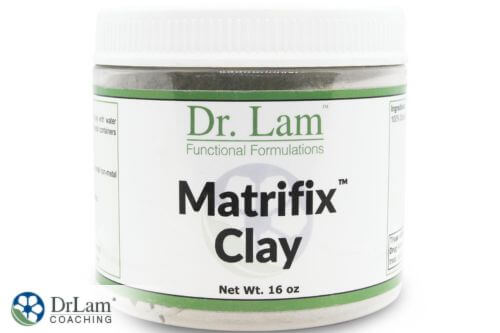 This clay is bentonite clay and has been used for many years as a natural detoxification agent. It has a high natural absorption rate and can absorb impurities in your body and your skin. Bentonite clay can either be applied to your skin topically or ingested. If you do ingest it, start with a small dose of half a teaspoon and mix with water.
This clay is bentonite clay and has been used for many years as a natural detoxification agent. It has a high natural absorption rate and can absorb impurities in your body and your skin. Bentonite clay can either be applied to your skin topically or ingested. If you do ingest it, start with a small dose of half a teaspoon and mix with water.
If you use it topically, mix one tablespoon of clay with a few tablespoons of water. When mixing this clay for both ingestion and topical use, it is important not to use any metal containers or utensils. Beware it is very constipating, so make sure you drink plenty of water with it.
This supplement consists of pure activated charcoal from coconuts. It can be used topically and internally and can absorb toxins from your skin and in your body. If you ingest it, start slowly with half a teaspoon of charcoal mixed in water.
If you use it topically mix, one teaspoon with two tablespoons of water. As with the Matrifix clay, do not use a metal bowl or utensil when mixing the charcoal and water. Charcoal is a very strong binder and can also cause constipation, so make sure to stay hydrated. It can also cause black stools.
This supplement consists of a fermented version of the herb milk thistle. The fermentation process can help to improve shelf life and improve gut health. Milk thistle helps to provide support to your liver, which helps to enhance its detoxification ability. This supplement is in a liquid form with a serving size of 5 ml and can be mixed with either water, juice, or a smoothie.
Glutathione is your body's most potent antioxidant and helps to reduce and prevent damage from free radicals. Whilst glutathione is the main antioxidant, there are several other antioxidants. This supplement contains a combination of antioxidants such as vitamins E, D, L-Carnitine, alpha lipoic acid, and glutathione.
This combination works to help protect your body from free radical damage from environmental toxins and is the best detoxifying supplement you can take. This supplement has a liposomal delivery system which improves the absorption of antioxidants in the body. It is in liquid form and has a recommended serving size of 5ml.
Adrenal Fatigue Syndrome (AFS) is a condition that occurs due to chronic stress. Your adrenal glands and NeuroEndoMetabolic (NEM) stress response system help to manage stress. The adrenal glands are two glands that sit atop your kidneys and release stress hormones such as cortisol. These hormones help your body cope with the stress that it is going through.
When stress becomes long-term, your adrenal glands can start to become depleted and levels of cortisol become low. This results in imbalances within the NEM system, and AFS begins.
The symptoms of AFS will depend on where in the NEM system the imbalance is occurring. There are six different circuits within the NEM system. One of these circuits is the detoxification circuit. This circuit is responsible for removing toxins and waste products from the body and consists of the liver, interstitium, and immune system.
Imbalances within this circuit can cause sensitivities to chemicals and supplements, brain fog, and fatigue. One cause of these imbalances is exposure to environmental toxins.
 Whilst there are multiple strategies you can implement to assist your body in detoxing, there are a few cautions to be aware of if you are experiencing AFS.
Whilst there are multiple strategies you can implement to assist your body in detoxing, there are a few cautions to be aware of if you are experiencing AFS.
In AFS, your body can become more sensitive to exercise and any new foods or supplements.
Exercising, especially vigorous exercise, can place your body under stress, and in AFS, this can become overwhelming for your body. Rather than doing vigorous exercise, opt for exercises that are gentle on your body and can help to relax your nervous system at the same time such as yoga or walking.
With nutrition, reducing alcohol and refined foods can assist with detoxing. However, you may need to reduce these foods slowly depending on the amount of alcohol and refined foods you are consuming. If you do introduce any new foods to your diet, do so with support from your healthcare provider as it may cause your body to react negatively.
Supplementation is also an important aspect of detoxing especially with AFS. Note that the FDA does not regulate supplements. This can result in supplements with poor-quality ingredients or supplements that are contaminated, that is why you want to get supplements from a trusted source. Before starting a supplement, it is important to seek support from your healthcare provider.
If you are considering detoxing and have AFS or are concerned that you may have AFS, chat with your health provider before you detox. Durastic detoxes can also put added strain on the body, worsen stress, and actually worsen detoxification problems if the detox system is clogged. Instead, it is best to focus on gentle and gradual detox methods. Your healthcare provider will be able to assist you in formulating a plan that will support your body and assist you in your healing journey.
Environmental toxins are all around us and can affect us in different ways including disrupting your endocrine system, increasing your risk of cancer, and increasing your rate of aging. Whilst this may seem scary, there are multiple strategies that you can practice to protect your body from environmental toxins. These strategies involve enhancing your detoxing system through nutrition and lifestyle changes.
If you are concerned about the effects of environmental toxins on your body, the team at Dr. Lam can help you in your recovery journey. You can either call us at +1 (626) 571-1234 or click here for a free initial call.
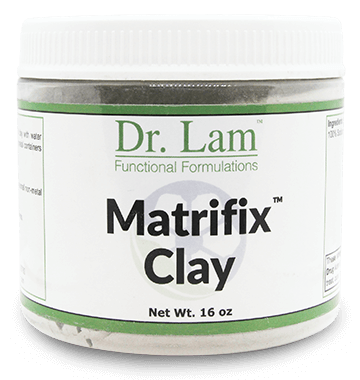
Naturally purify your body with Matrifix Clay!
"Formaldehyde." National Cancer Institute, Dec. 2022, https://www.cancer.gov/about-cancer/causes-prevention/risk/substances/formaldehyde
Rudel, RA. et al. "Food Packaging and Bisphenol A and Bis (2-Ethyhexyl) Phthalate Exposure: Findings From a Dietary Intervention" Environ Health Perspect, vol. 119, no. 7, Jul. 2011, pp. 914-20. https://pubmed.ncbi.nlm.nih.gov/21450549/
Swan, SH. et al. "Prenatal Phthalate Exposure and Reduced Masculine Play in Boys" Int J Androl, vol. 33, no. 2, Apr. 2010, pp. 259-69 https://pubmed.ncbi.nlm.nih.gov/19919614/
Unuvar, T. Buyukgebiz, A. "Fetal and Neonatal Endocrine Disrupters" J Clin Res Pediatr Endocrinol, vol. 4, no. 2, Jun. 2012, pp. 51-60 https://www.ncbi.nlm.nih.gov/pmc/articles/PMC3386773/
There are blood tests and at home tests available for some environmental toxins. However, some toxins may not be detectable using these tests. This makes it important to see a healthcare professional who will be able to track your symptoms and provide you with the necessary guidance and support.